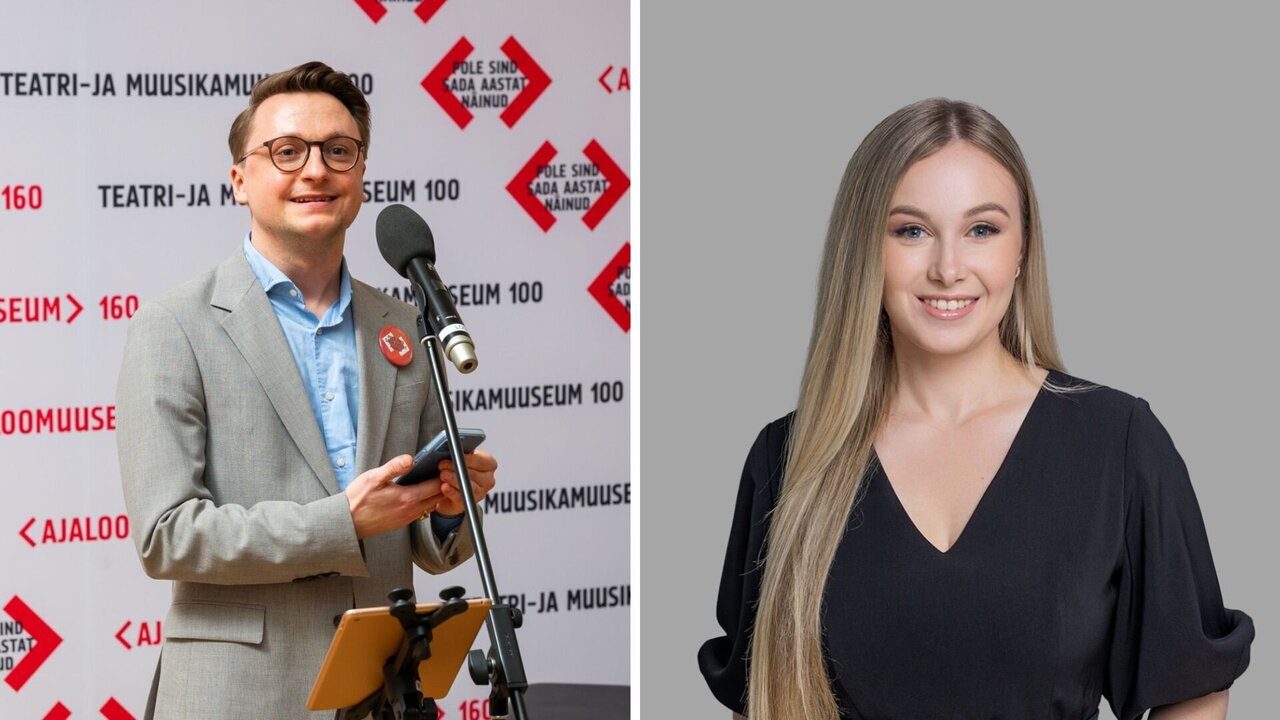-
Faculty of Arts and HumanitiesDean's Office, Faculty of Arts and HumanitiesJakobi 2, r 116-121 51005 Tartu linn, Tartu linn, Tartumaa EST0Institute of History and ArchaeologyJakobi 2 51005 Tartu linn, Tartu linn, Tartumaa EST0Institute of Estonian and General LinguisticsJakobi 2, IV korrus 51005 Tartu linn, Tartu linn, Tartumaa EST0Institute of Philosophy and SemioticsJakobi 2, III korrus, ruumid 302-337 51005 Tartu linn, Tartu linn, Tartumaa EST0Institute of Cultural ResearchÜlikooli 16 51003 Tartu linn, Tartu linn, Tartumaa EST0Institute of Foreign Languages and CulturesLossi 3 51003 Tartu linn, Tartu linn, Tartumaa EST0School of Theology and Religious StudiesÜlikooli 18 50090 Tartu linn, Tartu linn, Tartumaa EST0Viljandi Culture AcademyPosti 1 71004 Viljandi linn, Viljandimaa EST0Professors emeriti, Faculty of Arts and Humanities0Associate Professors emeriti, Faculty of Arts and Humanities0Faculty of Social SciencesDean's Office, Faculty of Social SciencesLossi 36 51003 Tartu linn, Tartu linn, Tartumaa EST0Institute of EducationJakobi 5 51005 Tartu linn, Tartu linn, Tartumaa EST0Johan Skytte Institute of Political StudiesLossi 36, ruum 301 51003 Tartu linn, Tartu linn, Tartumaa EST0School of Economics and Business AdministrationNarva mnt 18 51009 Tartu linn, Tartu linn, Tartumaa EST0Institute of PsychologyNäituse 2 50409 Tartu linn, Tartu linn, Tartumaa EST0School of LawNäituse 20 - 324 50409 Tartu linn, Tartu linn, Tartumaa EST0Institute of Social StudiesLossi 36 51003 Tartu linn, Tartu linn, Tartumaa EST0Narva CollegeRaekoja plats 2 20307 Narva linn, Ida-Virumaa EST0Pärnu CollegeRingi 35 80012 Pärnu linn, Pärnu linn, Pärnumaa EST0Professors emeriti, Faculty of Social Sciences0Associate Professors emeriti, Faculty of Social Sciences0Faculty of MedicineDean's Office, Faculty of MedicineRavila 19 50411 Tartu linn, Tartu linn, Tartumaa ESTInstitute of Biomedicine and Translational MedicineBiomeedikum, Ravila 19 50411 Tartu linn, Tartu linn, Tartumaa ESTInstitute of PharmacyNooruse 1 50411 Tartu linn, Tartu linn, Tartumaa ESTInstitute of DentistryL. Puusepa 1a 50406 Tartu linn, Tartu linn, Tartumaa ESTInstitute of Clinical MedicineL. Puusepa 8 50406 Tartu linn, Tartu linn, Tartumaa ESTInstitute of Family Medicine and Public HealthRavila 19 50411 Tartu linn, Tartu linn, Tartumaa ESTInstitute of Sport Sciences and PhysiotherapyUjula 4 51008 Tartu linn, Tartu linn, Tartumaa ESTProfessors emeriti, Faculty of Medicine0Associate Professors emeriti, Faculty of Medicine0Faculty of Science and TechnologyDean's Office, Faculty of Science and TechnologyVanemuise 46 - 208 51003 Tartu linn, Tartu linn, Tartumaa ESTInstitute of Computer ScienceNarva mnt 18 51009 Tartu linn, Tartu linn, Tartumaa ESTInstitute of GenomicsRiia 23b/2 51010 Tartu linn, Tartu linn, Tartumaa ESTEstonian Marine Institute0Institute of PhysicsInstitute of ChemistryRavila 14a 50411 Tartu linn, Tartu linn, Tartumaa EST0Institute of Mathematics and StatisticsNarva mnt 18 51009 Tartu linn, Tartu linn, Tartumaa EST0Institute of Molecular and Cell BiologyRiia 23, 23b - 134 51010 Tartu linn, Tartu linn, Tartumaa ESTTartu ObservatoryObservatooriumi 1 61602 Tõravere alevik, Nõo vald, Tartumaa EST0Institute of TechnologyNooruse 1 50411 Tartu linn, Tartu linn, Tartumaa ESTInstitute of Ecology and Earth SciencesJ. Liivi tn 2 50409 Tartu linn, Tartu linn, Tartumaa ESTProfessors emeriti, Faculty of Science and Technology0Associate Professors emeriti, Faculty of Science and Technology0Institute of BioengineeringArea of Academic SecretaryHuman Resources OfficeUppsala 6, Lossi 36 51003 Tartu linn, Tartu linn, Tartumaa EST0Area of Head of FinanceFinance Office0Area of Director of AdministrationInformation Technology Office0Administrative OfficeÜlikooli 18A (III korrus) 51005 Tartu linn, Tartu linn, Tartumaa EST0Estates Office0Marketing and Communication OfficeÜlikooli 18, ruumid 102, 104, 209, 210 50090 Tartu linn, Tartu linn, Tartumaa EST0Area of Vice Rector for ResearchUniversity of Tartu LibraryW. Struve 1 50091 Tartu linn, Tartu linn, Tartumaa EST0Grant OfficeArea of Vice Rector for DevelopmentCentre for Entrepreneurship and InnovationNarva mnt 18 51009 Tartu linn, Tartu linn, Tartumaa EST0University of Tartu Natural History Museum and Botanical GardenVanemuise 46 51003 Tartu linn, Tartu linn, Tartumaa EST0International Cooperation and Protocol Office0University of Tartu MuseumLossi 25 51003 Tartu linn, Tartu linn, Tartumaa EST0Area of RectorRector's Strategy OfficeInternal Audit OfficeArea of Vice Rector for Academic AffairsOffice of Academic Affairs0University of Tartu Youth AcademyUppsala 10 51003 Tartu linn, Tartu linn, Tartumaa EST0Student Union OfficeÜlikooli 18b 51005 Tartu linn, Tartu linn, Tartumaa EST0Centre for Learning and Teaching
Lennart Meri awards went to Timo Aava and Hegle Pärna

On 21 February, at the Independence Day ceremony in the University of Tartu assembly hall, the recipients of the Lennart Meri award for research and the Lennart Meri award for master’s thesis were announced. The 6,000-euro award for research went to Timo Aava for his doctoral thesis in history, and the 4,000-euro award to Hegle Pärna for her master’s thesis in law.
The Lennart Meri award for research is given to an author or a group of authors for a high-level research paper (incl. a doctoral thesis) dealing with the Estonian state, people, culture or society.
The Lennart Meri award for research 2024 went to Timo Aava. In 2023, Aava defended his doctoral degree in history at the University of Vienna, analysing debates over cultural autonomy and the functioning of this idea, with a focus on Estonia and other European states in the first half of the 20th century. The doctoral thesis helps to better understand why, in 1925, a hundred years ago, the Estonian Parliament adopted the cultural autonomy law, one of the most minority-friendly legislation in interwar Europe. The thesis gives valuable information about the history of national minorities, the Estonian intellectual history and its connections with the rest of Europe.
Timo Aava is happy to receive the award and feels grateful. “I am truly honoured to receive such recognition for my thesis. It is also a great encouragement for me to continue this work. I am thankful to everyone who has supported me with the research,” said Aava.
The Lennart Meri award for master’s thesis is given to an author who has received the grade A for their master’s thesis dealing with the Estonian state, people, culture or society.
The Lennart Meri award for master’s thesis 2024 went to Hegle Pärna. In her master’s thesis, defended at the University of Tartu last year, Pärna studied the development and use of generative artificial intelligence and the related copyright issues. The topic has been particularly relevant in recent years, as the development of generative artificial intelligence involves using large datasets that also contain copyrighted works. However, the clarity of the current legal framework in this area has been lacking.
It is an interdisciplinary master’s thesis in which the author had to apply legal knowledge to a novel social phenomenon. According to Helge Pärna, winning the award will broaden her future opportunities. “Receiving the Lennart Meri award is a great honour and will allow me to further my professional development abroad and gather new ideas for solving bottlenecks in the field of artificial intelligence in Estonia,” said Pärna.
The administrative board of the Lennart Meri research awards fund that chooses the award recipients and organises the activities of the fund comprises (as of 2024) attorney-at-law Jüri Raidla (chair), spouse of the President of the Republic and patron of the University of Tartu Foundation Sirje Karis, entrepreneur Tiit Pruuli, ambassador Jüri Luik, Head of the Domestic Policy Department of the Office of the President of the Republic Erki Holmberg, Professor in Animal Ecology Tuul Sepp and Rector of the University of Tartu Toomas Asser.
“All submitted research papers met the objective of the fund – to recognise and value research on the Estonian state, people, culture or society and contribute to the quality of research. Submissions came from a wide range of research fields, significantly increasing the value of the competition,” said Jüri Raidla, chair of the administrative board of the fund. According to Raidla, many applicants had probably had Lennart Meri’s activities in mind, which is why the competition attracted a large number of entries from the fields of history, culture, Estonian language and literature, state and law.
The Lennart Meri research awards fund was created in 2007 in memory of Lennart Meri, the first President of the Republic of Estonia after regaining independence and a former patron of the University of Tartu Foundation.
Read more similar news




